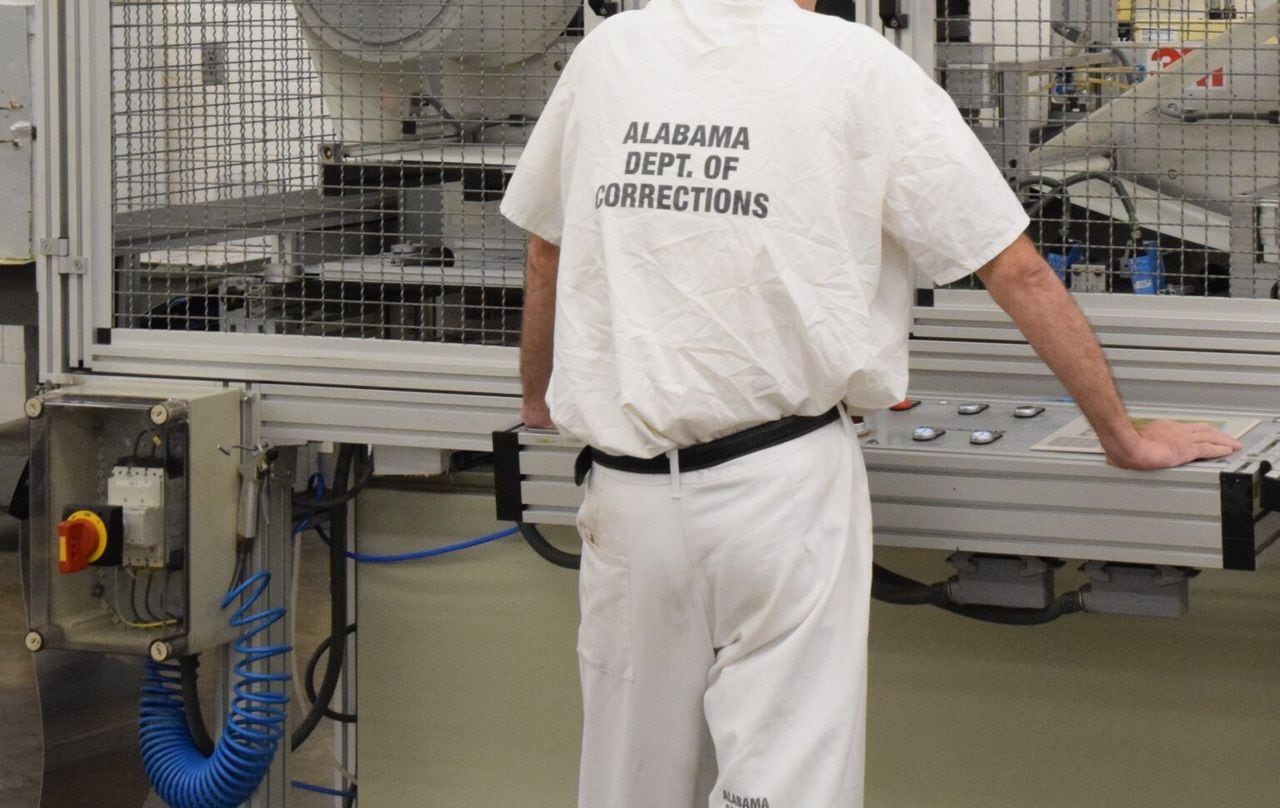Alabama prisonerâs brain missing after UAB autopsy, says family
Another family claims their loved one was missing organs after dying in an Alabama prison, and that a funeral director discovered the problem and warned them against holding a viewing.
The family claims in court records that the 74-year-old man’s brain was missing, along with his other internal organs, after the body was returned from an autopsy at the University of Alabama at Birmingham.
Charlene Drake’s father, Charles Singleton, was serving time in prison for sex crimes. He died at a Tennessee hospital on Nov. 2, 2021, according to a sworn statement entered in federal court records. At the time of his death, Singleton was incarcerated at the Hamilton Aged and Infirmed prison in Hamilton, Alabama.
Drake said that her family asked for her father’s body to be sent to Usrey Funeral Home in Pell City. She asked the funeral home director to have a viewing, but the director “advised that it would be difficult to prepare his body for viewing, as his body was already in a noticeable state of decomposition characterized by advanced skin slippage,” according to a sworn statement signed by Drake in court records.
Drake’s statement is part of an exhibit in support of the case of Brandon Dotson, whose family said he was returned to them missing a heart after dying at Ventress Correctional Facility last year. The dispute over the missing heart is pending in federal court. Court records don’t reflect a separate case involving Singleton.
A few days after Singleton was taken to the funeral home, Drake said she and her family went to see her dad’s body.
The director “informed us that there were no organs in the body. He said normally the organs are in a bag placed back in the body after an autopsy, but (Singleton) had been brought to the funeral home with no internal organs. His brain had also been removed. According to (the director), he still had his eyes, but all other organs were gone.”
Drake did not respond to requests for comment for this story.
According to her statement, Drake said the chaplain of the prison called to tell her about her father’s death. She asked to claim the body.
The following day, she said the University of Alabama at Birmingham received Singleton’s body for an autopsy. A representative from UAB wouldn’t confirm or deny that the institution performed Singleton’s autopsy, citing “laws related to the privacy of medical records.”
Autopsies are standard for inmates who die in prison. Testimony in a January court hearing in Doston’s missing heart case revealed that some inmates’ bodies are sent to UAB for autopsies, while others are sent to the Alabama Department of Forensic Sciences. Dotson underwent an autopsy at the Alabama Department of Forensics.
Drake said her daughter called UAB after the discovery of her father’s missing organs, but was never able to talk to anyone with the pathology department. “We were never provided an explanation of where his organs are.”
A representative from the Alabama Department of Corrections said that the ADOC doesn’t perform autopsies and the prison facilities “have zero surgical capabilities.”
But a spokesperson from UAB sent a lengthy statement, saying the university doesn’t comment on “pending or threatened litigation,” but added that UAB “only conducts autopsies after obtaining consent or authorization from the appropriate state official.” For inmate autopsies, UAB said, the department is responsible for “obtaining proper authorizations from the appropriate legal representative of the deceased.”
“The authorization forms not only provide permission for the autopsy, but also specifically include consent for the removal of organs or tissues for diagnostic or other testing including final disposition,” said the spokesperson.
“Nevertheless, UAB can say that it does not harvest organs from bodies of inmates for research as has been reported in media reports.”
“UAB has one of the highest ranked pathology programs in the country,” said the statement.
“It is accredited by the College of American Pathologists and is staffed by credentialed physicians who are certified by the American Board of Pathology. Its autopsy procedures are conducted in compliance with College of American Pathologists Guidelines. Moreover, a panel of medical ethicists reviewed and endorsed our autopsy protocols.”
UAB’s statement also detailed how autopsies work and why some organs may be removed during the procedure due to the “clinical standard.”
“The collection and retention of tissue and fluid specimens is an important aspect of routine autopsy practice and necessary for determining cause of death. In many cases, only fluids for toxicology and other laboratory analyses and small portions of tissues for microscopy are retained,” said the statement.
“In some cases, however, the pathologist performing the autopsy may, in their professional judgment, determine that evidence-based medicine requires the retention of organs or organ blocks for further examination and testing. These specimens may be kept beyond release of the body to the next‐of‐kin (for burial or other disposition) in the course of customary and optimal determination of the cause of death.”
“UAB attempts to accommodate family wishes while also ensuring that it conducts a complete cause of death investigation.”
